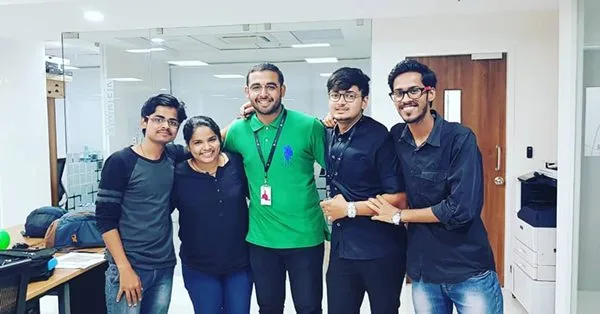Rajat Gupta, Founder of ArchPhillic enthusiastically promotes the No Sir No Madam cause. Rajat pursued Metallurgical and Materials Engineering from National Institute of Technology (NIT), Warangal. A year ago, he started ArchPhillic, which is a Virtual Reality based start-up. It provides virtual reality and other immersive solutions for builders and architects to visualize and customize pre-constructed properties.
Rajat relates the No Sir No Madam initiative to Stephen J. Sampson’s book — Leaders without Titles. He believes that there is no point of having these salutations that discriminate. In the end, the decisions and skills of a leader matter rather than his position.
In his college, juniors referred to seniors as Sir or Madam, along with the professors. However, Rajat opposed this custom that created a divide between seniors and juniors. Rajat encouraged his juniors to be friendly and uninhibited around him. In the absence of Sir/Madam terminology, he built a better relationship with the seniors and juniors.
Rajat maintains the same informal environment at his workplace. There is no barrier between the members, where the juniors reach out to him for help at any time. He asserts, “They simply address me as Rajat. This makes conversations easier, and hesitation disappears on both sides.”
However, there are people in business and corporate fields who are still stuck on the ancient custom. Rajat shares that one of his clients had been extremely offended when he referred by his name. He noticed that subordinates regarded this client as ‘saheb’ and the higher executive as ‘bade saheb’. They refused to communicate with Rajat, as they considered his post to be lower than their position.
Rajat observed a similar egoistical perspective among the government organizations. The officials do not cooperate, if we do not address them as Sir or Madam. This terminology makes the authorities feel superior, and they believe that they have all the power.
Rajat concurs, “We follow this protocol to please the officers and complete our projects. However, once salutation is abolished, it can reduce corruption in the long run.”
People start following the Sir/Madam culture from schools and colleges. Hence, Rajat asserts that change needs to be instilled within colleges and universities, where students are mature enough to understand such concepts. Later, people will then naturally spread their transformed views among other sectors and sections of the society.
Professionalism and equality are prime factors for the proper functioning of an industry. Rajat agrees that we should implement the top-down approach. Once the elders perceive the idea positively, the youngsters can look up to them for inspiration. Thereafter, in unity and togetherness, an organization can grow successful.
He suggests that the No Sir No Madam initiative should organize awareness campaigns for different industries and discursive sessions in colleges. He states, “We need to show people what improvements can be instilled in the society through the culture of mutual respect.”
In conclusion, Rajat enumerates, “There is no need for artificial respect. Your work should speak about your skills and talent.”







Add comment